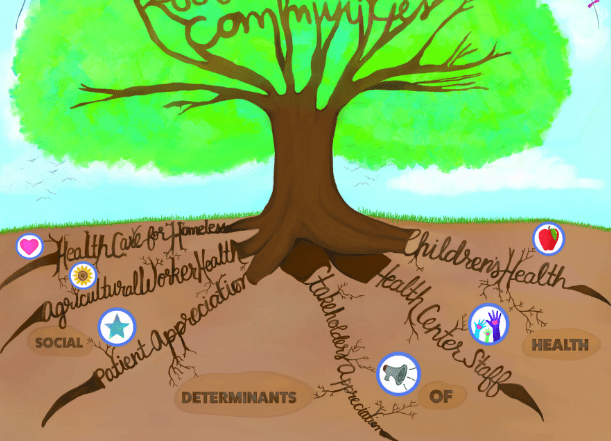Nonprofit Grants and Funding in the Age of COVID-19
Thoughts on talking to funders, advancing your grants, and keeping your organization and its response activities afloat during this challenging time
As the global COVID-19 pandemic unfolds, health and human services nonprofits are bearing some of the brunt. Many are serving more critical needs than ever, whether those be physical health, mental health, food insecurity, or housing. Simultaneously, so many have seen their services and funding suffer during shelter at home orders and lock downs. Many have had to deal with budget shortfalls, staff furloughs, unexpected capital needs, and much more.
There’s no easy solutions to these challenges, but LHF does have a few thoughts to offer nonprofit leaders, whether they are trying to actively look for grants, are putting their programs on hold, or are in the trenches responding to critical needs.
For Grant Seekers: Communicate Honestly
Looking for funds in the midst of such a crisis can be tricky. It can even feel silly, inappropriate, or tone-deaf to ask that funders consider your in-person, non-pandemic-related work right now.
But grant seekers need not fear communicating with funders, even at such a time. Here are a few thoughts on how to handle these calls.
- Don’t pretend nothing is going on. Acknowledge that the funder is probably busy, perhaps providing grantees with emergency funds. Ask how they are doing, just as you would a colleague or peer.
- Ask upfront if their funding priorities are shifting, as they very well may not be. Remember: funders have missions too, and won’t be changing them overnight. Even if they are providing crisis funds or looking to have an impact on the response, few foundations will be switching their missions entirely. If they are an arts or education funder, they’ll likely remain an arts or education funder.
- Address changes your nonprofit has made for now. So you can’t offer your diabetes education program in person during a stay at home order – are you doing it online, or sharing tools by email? Be ready to say how you are continuing your work and continue to support both your participants and staff.
- Connect your issue, appropriately, to the crisis! Whether you work on mental health, chronic disease, senior services, homelessness, food insecurity… the list goes on for how the crisis may shed light on your mission and the need for your work. Don’t be afraid to make that connection, without making the crisis all about you.
For Nonprofits on Hold: Get Organized and Ahead
Many nonprofits whose programs are on hold may not only feel silly highlighting their in-person work at a time like this, but may even feel that there is no point seeking grants for in-person programs right now.
So for nonprofits in this boat, here are some ideas for productive things to do right now if you feel like your work or your funding streams are on hold.
- Get organized! Consider doing some grant prospect research, or getting all your registrations and attachments in order. Many core grant attachments, like board lists and lists of top funders can easily get out of date; if you are in a slow period, it’s a perfect moment to update these.
- Get writing! Are there programs you have been meaning to write up for submissions later in the year? Reports due in a couple months you can start on? If you are holed up at home and not slammed with service delivery, no time like the present to do some writing.
- Don’t try to retool all of your programs today to address the crisis. It’s very important that you figure out how to deliver your programs and services over the short term, but remember that we’re learning more and more each day and we don’t know what the world will look like in 6 or 12 or 18 months. Don’t assume the program changes you are making right now will have to be permanent.
- Remember: grant timelines can be long. If a funder’s next deadline is in June for money awarded in December for work in 2021, you may still be able to apply “normally.” Just be sure to communicate with the funder to find out if they are anticipating changes, whether to their funding timeline, priorities, or anything else.
For Nonprofits in Crisis Response Mode: Reach Out for Support
The tips above may be helpful to those who feel uncomfortable talking to funders right now or who feel their work is on hold. But that’s certainly not the case for all nonprofits – far from it.
Especially in health and social services, the need is greater than ever. Many organizations are working overtime to meet critical needs, and it can feel like there are no resources to help.
So for all you frontline nonprofits who may be spread thinner than ever and need support, here are a few ideas.
- Look to government support in the various federal relief and recovery bills like the CARES Act. If your nonprofit has fewer than 500 employees, you could apply for a loan or grant; there are also special funds allocated for hospitals, Federally Qualified Health Centers, providers of services to uninsured individuals, and many other organization types.
- See if local funders are banding together, such as the Chicago Community COVID-19 Response Fund. If you normally get funding from one of those funders, it is worth inquiring with your program officer whether your work could be part of their next round of funding or whether there will be open rounds of funds.
- For your regular grants, communicate with your funders about if you can use their grant dollars for slightly different, more urgent COVID-19 related needs. Many funders will be happy for you to divert their dollars towards critical crisis response as long as you discuss it with them first, make an appropriate case for it, and do not use the dollars for any excluded/prohibited uses.
- Tap into your corporate and individual donors and volunteers by expressing how critical your mission is at this exact moment. There are many people who feel helpless and want to help make a difference through money, in-kind giving, or volunteerism. You could provide them with ways to give back and do something meaningful, while also providing your organization with much needed support.
For Everyone: Reflect, Practice Gratitude, and Raise Awareness
This is a tough time for everyone – the toughest many of us have lived through – and it likely to remain challenging for a while. I find it helpful to keep things in perspective during this time, while also practicing gratitude and raising awareness of the causes near to my heart.
A few reflections I’ve had that may or may not resonate with you:
- How grateful I am to have a safe home in which to shelter in place or quarantine. Homeless and transient individuals don’t have such luxuries, and victims of domestic violence may be forced to shelter with their abusers.
- How grateful I am to be able to do my job serving nonprofits remotely. Many jobs, from garbage collector to grocery clerk to bus driver to postal worker, have no remote option. Our essential health care providers and hospital workers must go to work every day to serve others.
- Not everyone is aware of the vast social inequities that we in the nonprofit sector are painfully aware of. Not everyone realizes how many people are low-income, uninsured, underinsured, or without a regular source of care. Not everyone realizes how many people have no food to eat, or whose only source of health food comes from their school or their job. It’s our responsibility to educate our families, communities, and elected officials about the needs we see every day, because not everyone is aware.
- How grateful I am for the public health departments and health nonprofits, like FQHCs and community hospitals, that make up our health safety net – every day, but even more so right now!
Want to learn more about how to improve your grant-readiness, during ordinary times as well as during the current crisis? Click here for a copy of LHF’s guide: “Top Three Things to Do Today to Improve Your Grant-Readiness for Tomorrow.”
Recent Posts
Top Three Things to Do Today to…
Improve Your Grant-Readiness for Tomorrow





